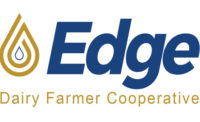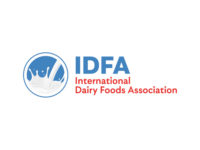
The 2020s may become known as a momentous decade in climate action. Today, more than 2,000 corporations have engaged with the Science Based Targets Initiative, and multiple regulatory bodies are advancing greenhouse gas (GHG) emissions reporting requirements. Finalization of one such rule by the U.S. Securities and Exchange Commission (SEC) is expected later this year. Even if regulations only require disclosures from publicly traded companies, those companies may demand data from their privately held suppliers.
Meanwhile, widespread reporting of emissions may begin to reveal inconsistencies in accounting practices, creating additional opportunities for clarification and consensus building to reassure stakeholders and environmental, social, and governance (ESG) analysts that GHG reporting efforts accurately reflect reduction progress. Fortunately for U.S. dairy, we can point to slow and steady progress on GHG reductions.
The International Dairy Foods Association (IDFA) — alongside several member companies and dairy organizations — submitted public comment to the GHG Protocol, which governs the most widely referenced global standards for GHG accounting and reporting. Now our industry plans to continue advocating that dairy companies join a dialogue with the non-governmental organizations (NGOs) that govern GHG Protocol. We seek increased clarity about accounting best practices for both ours and other industries facing similarly complex GHG accounting challenges along globalized supply chains.
Agriculture offers various opportunities to reduce or remove GHGs, including building soil carbon, utilizing precision technology, and improving manure management. For the dairy sector, we must consistently quantify the benefits of such interventions alongside generated emissions, and accurately communicate continuous improvement. This accounting, however, is not straightforward.
For example, we must allocate emissions, including reductions/removals, among business partners along the value chain, and sometimes account for carbon credits sold outside the chain. We aim to overcome this challenge with full transparency in our accounting of emissions. A shift to policies that require GHG disclosure will demand quantified — and likely audited — demonstration of progress, not just storytelling.
Today, emissions reporting is largely voluntary (although the financial sector requires more consistently). As reporting becomes required, companies will need to adapt by learning the standards and building GHG accounting processes. Some will face more complicated challenges than others, and some may seek third-party expertise. IDFA and the Innovation Center for U.S. Dairy offer sustainability resources specifically tailored to help dairy farmers and processors, and similar resources are proliferating in the marketplace. Several NGOs, industry coalitions, and business advisory firms also offer GHG management guidance.
As IDFA continues monitoring this evolving regulatory environment, we have worked with our members to identify three key focus areas to guide our advocacy for dairy. First, we believe a single, global standard for GHG accounting and reporting will be key. While this must be flexible enough to acknowledge local realities and variation in production systems, having a single standard should facilitate trading goods and ESG performance evaluation. Second, we see a need for increased GHG Protocol guidance about how scope 3 emissions are allocated between links of agricultural supply chains, especially given the existence of GHG offset market opportunities. Today, offset sales are stimulating welcome investment in on-farm GHG mitigation projects while also presenting an accounting challenge to dairy processors wishing to demonstrate reduction progress upstream.
Finally, we will encourage continued innovation in both on-farm technology and climate-related financing. Innovations — such as within-value-chain “inset” project financing models and novel feed solutions to reduce enteric methane — may lead to additional accounting questions. This reinforces the industry’s call for re-examination and clarification of certain nuances of scope 3 accounting methodology.
The GHG Protocol provides an important guiding framework, but there is still room to further define best practices that will ensure proper allocation and calculation methods for accounting along complex value chains, such as dairy. In U.S. dairy, our shared goal is to reach consensus on feasible accounting practices that meet international standards and result in consistent, highly transparent reporting that recognizes the climate progress we have made and will continue to achieve for our industry.
Mike Aquino leads sustainability and environmental, social, and governance (ESG) initiatives as part of IDFA’s Regulatory and Scientific Affairs team. Aquino has experience in yogurt production, dairy purchasing, and corporate sustainability management.




